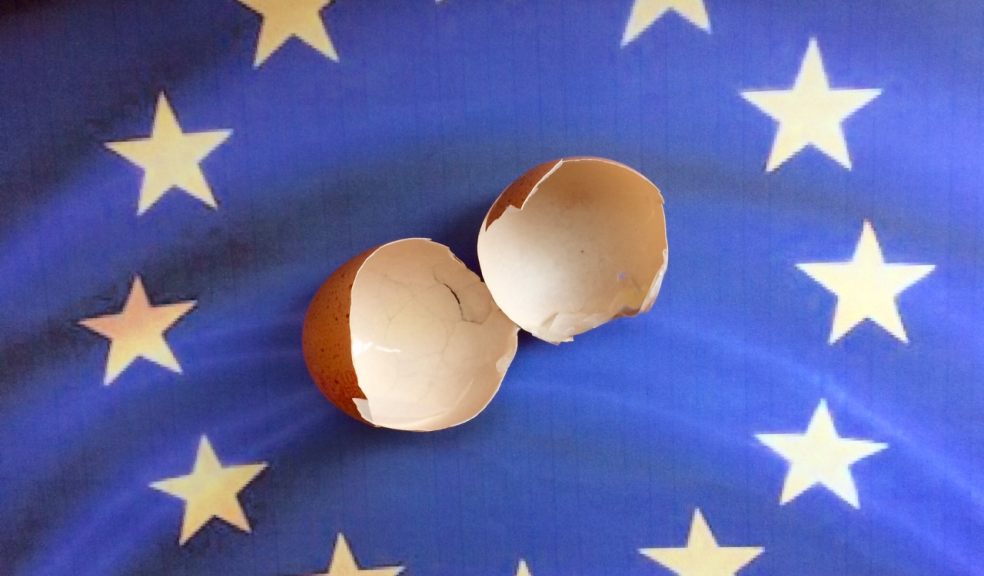
Post Brexit Easter
We are living at a crossroads when an emphasis on the common wealth or common good is being replaced by an uncertain and dubious individualism.
I have spent the last 35 years of my life and ministry struggling against ‘social evils’ and the forces of reaction. I have collectively engaged in activities promoting greater compassion and equality, peaceful resolution of conflict, justice and togetherness. With others, I have actively campaigned against lack of purpose, homelessness, ecological destruction, xenophobia, social exclusion and so on.
We have celebrated cultural diversity in both international cooperation and local community events. We have set up projects around racial and religious cohesion, and activities for transnational linking and learning. We have welcomed refugees to Devon, and addressed the need for Food Banks, Debt Advice and Credit Unions across the Diocese. We are aspiring to develop new community economic initiatives, including localised currencies. We have become significantly responsive to the fact that our wasteful human lifestyles have severe consequences for the planet including loss of species, environmental ill-being and climate change.
So, at the moment it feels like we are moving backwards as the current regressive wave of hate and fear dominates our political landscape. The bonds of unity and solidarity are fast eroded away by the calls for fracture and fragmentation.
The prevailing ideology of our day is that other people and countries are not to be trusted and that we should focus only on our own self-interests. We therefore mistrust our immediate neighbours and are highly suspicious of anything that smacks of cooperation with nearby nations. The messages we are fed by opportunistic politicians and journalists fuel our misgivings and we end up being paralysed by our own doubts.
This ego-centred insecurity is at the heart of the Brexit banter and banality. We have accepted the conviction that we must be ‘independent’ from the decisions of people we have been persuaded are not interested in us. Our own apparent self-determination must not be compromised. We conclude with an island mentality that pulls up drawbridges of trepidation and builds walls of apprehension. We scapegoat minorities and forget our own histories of migration and multi-cultural diversity.
This pervasive kind of thinking feeds itself and fundamentally undermines the collaboration which builds community life. That which binds us together is rejected, and we retreat ever further into self-protection and individualism.
Ultimately this dogma will defeat itself because physically, geographically, psychologically and culturally we are all interdependent. Civilisation depends on a common sharing of genes, resources and values, and any prolonged quest for total sovereignty is verging on the edge of fantasy.
The philosophy of self-interest is totally un-Christian in my view, and should be challenged at every opportunity by the Church. Christianity becomes a living faith when we recognise our connectivity to and our responsibility for one another. We are all on the Earth to relate positively and creatively to one another. Abundant life is enhanced, not diminished, by opening up our lives to those who are different.
It is in loving relationships that our humanity is most realised, not in the pursuit of greed, intimidation or cynicism. Beyond religious language the more profound purpose of the Christian faith is to embody loving others in a journey of empathy, justice and hope.
That is why we must continue to speak out against the rhetoric of division and distrust. Either we embrace each other in all our vulnerabilities, and care for our rootedness in the Earth and with all humanity – or there is no ultimate meaning in human existence.
Brexit has been a very carefully choreographed piece of theatre. The process has been dramatized by the media from the creation of UKIP (and before), to the mailing of a letter to state the UK’s intention to withdraw from the EU. This is not only playing power-games. It is also performance. And most of us are merely passive onlookers from the galleries. We seem to be compliant because it’s the only show we are offered and those who write the script are not short of further twists and turns. It is only when we stand to leave the auditorium that will we wake up to dreadful storm that is taking place in the wider world.
50 years ago, the majority of the UK population expressed a strong wish to remain as part of the then European Economic Community. Now it would appear they do not. But in a generation’s time who knows? Who dares presume that opinions and beliefs remain the same for ever? History does repeat itself and ideologies change.
In the past few generations it feels like the post-war drivers of compassion and cooperation have been replaced by pervasive distrust and dysfunction. Yet in this deadly scenario, there is still resilience and renaissance. Even now there are small groups of people creating new ways of living more lightly on the Earth and more convivially with one another.
Even at such bleak times, as Bishop David Jenkins used to say, there is still hope of, and hope in, being human.
In this season of resurrection we may want to recall especially that the Easter experience means things are not always what they seem on the surface. The grave that we are staring into may still offer hope and wholeness…




















